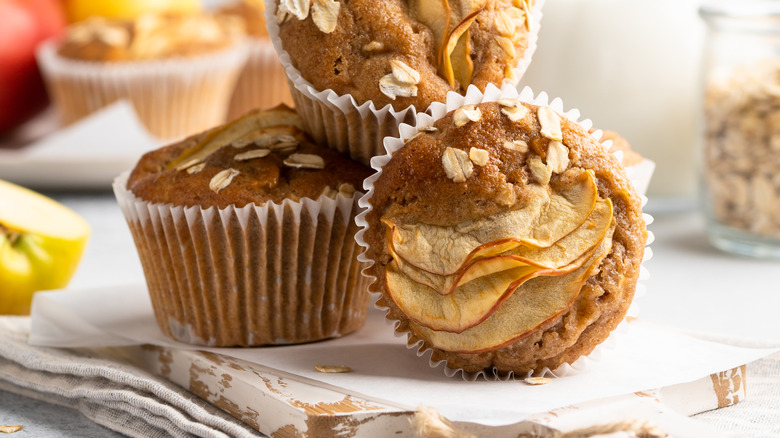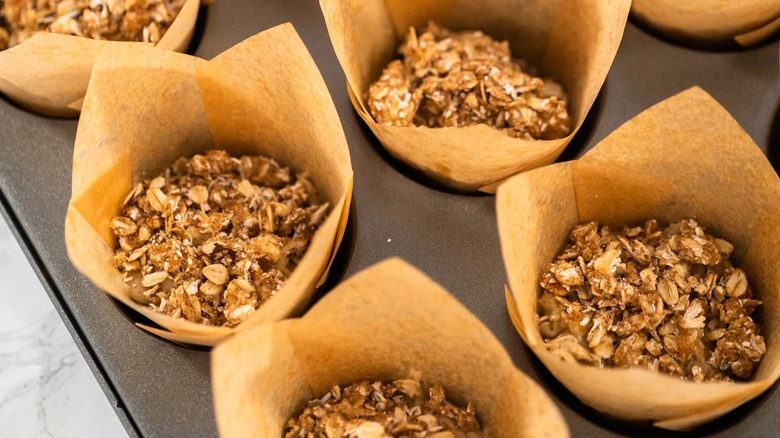The Trick For Ensuring Your Oatmeal Muffins Stay As Moist As Possible
No matter what type of muffins you make, the texture is just as important as the flavor. The perfect amount of blueberries or the best balance of lemon and poppyseed won't do any good in a muffin that's crumbly or dense instead of fluffy and moist. Unfortunately, ending up with dry muffins is a common mishap, and according to Beat Bake Eat, flour is usually the culprit.
When you use too much flour — often the result of tightly packing the flour into a measuring cup — it throws off the consistency of the muffin. If you overmix the batter on top of that, the excessive gluten that forms will ultimately result in a tough, dry crumb. Overbaking the muffins, or even just letting them cool directly in the pan instead of removing them immediately after baking, can produce the same outcome. These issues luckily are easy to prevent. However, if it seems the flour or the bake time isn't to blame, it may be another ingredient. For instance, if your muffin recipe calls for oats, there's a higher risk of them turning out dry.
Why do oatmeal muffins tend to be dry?
As you might assume, muffins get their moisture from the wet ingredients in the batter. For most recipes, it's usually only milk and butter, but Recipe Tin Eats favors adding oil to amp up the moisture, while Bob's Red Mill suggests Greek yogurt and buttermilk. The way you go about adding these ingredients can also make a big difference. Bob's Red Mill recommends combining the wet ingredients separately before incorporating them into the dry ingredients. According to the baking brand, creating a well out of the dry ingredients and then slowly pouring in the wet ones works best.
This method however isn't quite as effective if you add oats into the equation. Oats, unlike flour, don't absorb moisture as easily, Kitchn explains. Even when they're included in a wet mixture, oats take longer to hydrate, and that means they can remain tough by the time you finish baking your muffins. The solution, therefore, is to give the oats enough time to hydrate before you add them to your muffin batter.
Treat oats as a wet ingredient in your muffin recipe
When making a recipe for oatmeal muffins, chances are you add the oats along with the dry ingredients. While many recipes call for this approach, it will inevitably lead to a drier end result. What you'll want to do instead, according to Marley's Menu, is give the oats a good soak before mixing them into the batter. Simply combine the oats and milk, and let them sit in a bowl for at least 10 minutes. Since it's better to have oats that are on the wetter than drier side, Oatmeal with a Fork suggests a total of 20 minutes for good measure.
Soaking your oats will automatically yield a more moist muffin, but Vintage Kitchen specifically recommends using traditional or old-fashioned oats. Instant oats will work in a pinch, but old-fashioned oats not only hydrate more effectively, but they also maintain their integrity without turning into mush. The resulting oatmeal muffins will be perfectly moist and flavorful.


